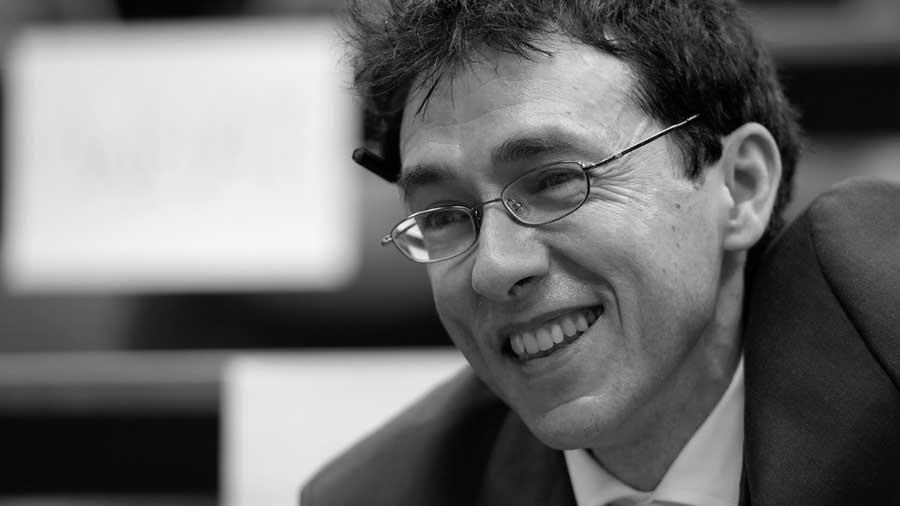
“WHAT ALMOST ALWAYS GETS IGNORED IS WHAT IS GOING ON INSIDE THE STUDENT.”
Interview with Dr. Taddy Blecher, CEO, Maharishi Invincibility Institute
Higher education focuses on learning and the teaching of socio-emotional skills is something usually not prioritized, often even ignored. This is a mistake, says Dr. Taddy Blecher, CEO of the Maharishi Invincibility Institute, a nonprofit private college and self-development organization with campuses in South Africa and Zimbabwe, and shortly Zambia and Brazil. The best way to improve educational outcomes is to invest in the whole student, which also means the socio-emotional skills that can have a huge impact on a student’s ability to learn, said Blecher, who spoke to us about how Maharishi students are taught and the impact on their lives.
Why do socio-emotional skills matter at the tertiary level?
In each subject we teach, there are things we want students to learn—knowledge, skills, values, ethics—but there is also the issue of how they gain that knowledge. For the past 2,000 years, education has tended to focus on the information that students must learn. What almost always gets ignored is what is going on inside the student: their ego, feelings, thoughts, creativity, or what we can call socio-emotional skills. These things are intangible—nobody can take them out of your head and put them under a microscope—which is why they tend to get ignored. I believe that the biggest gains to be made in education, including at tertiary level, will be made by focusing on socio-emotional skills. Doing so will help close the achievement gap, improve educational and career outcomes, help develop economies, and lead to more satisfied and well-adjusted young adults.
What is the Institute’s approach to developing these skills?
Most of our students do not have the academic background or grades that would get them admitted into a public or private university. When they come to us, we teach skills like languages and computers, but also we support their emotional wellbeing. We get results by focusing on the thing that tends to be most missing: development of the individual. We are breaking the odds and proving that even people who are not academically capable by conventional standards can succeed.
How do you measure and credential socio-emotional skills?
It is hard to measure them and can be a little subjective, which is another reason why the education world tends not to focus on them that much. We can measure some things physiologically. For example, one correlator of socio-emotional wellbeing is stress. We do qualitive and quantitative studies of stress, looking at things like cortisol and serotonin levels, and giving people questionnaires where they report on their sense of wellbeing. Every year, we test our students for various forms of depression and Post-Traumatic Stress Disorder (PTSD).
What are some of the challenges and traumas that students in post-apartheid South Africa must overcome?
We break them down into several categories. Financial and economic factors—poverty, wealth inequality, unemployment. Psychological factors—depression, fear, anxiety—which most universities are unprepared to deal with. Next is social and family factors. In South Africa, we have the highest rate of violence and sexual abuse of women and children in the world. Research shows that even witnessing violence negatively impacts educational outcomes, leads to dropouts and suicides. Then there are physiological and health factors. South Africa has the highest rate of youth stunting in the world. Many children’s parents are not alive, having died from AIDS, so there is lack of mental stimulation. And there are societal factors that come from political unrest and uprisings.
Taking into account these underlying factors is not a luxury, something you do after you teach them advanced science. We cannot teach math unless we have developed a fertile field in which to teach. A person must be able to think clearly, to bolt concepts on top of each other.
Your Institute uses various techniques, including transcendental meditation. Tell us about them and how they work.
We use a combination of techniques and we designate times to do them each day. Mental and physical ones like yoga and stretch exercises help people deal with stress. We use breathing techniques too. Meditation develops coherence in the brain. With meditation, the person gets very deep rest, about twice as deep as your deepest sleep. We know that very deep rest heals the body and releases stress that has been stored in your nervous system. When the person is more rested the brain can develop and function properly, which improves the rest of their being.
We also use diet: we feed students a lunch every day that is largely plant-based, organic food. We teach them good lifestyle practices, daily and seasonal routines that create more balance, order, and wellbeing in their lives. We have teams of psychologists and social workers on campus so it’s not just an add-on they go to if they’re feeling unwell. We measure and track the wellbeing of each student. We allocate quite a budget for this because if you don’t invest it’s not going to happen.
What’s the impact of Covid been?
Covid has greatly exacerbated these issues. It’s like you have a crack in a mirror and then you stand on that mirror and the crack becomes a lot worse. The trends in depression, suicide, obesity, and other health issues have been here for the past 10 or 20 years. These challenges, which will continue beyond the pandemic, absolutely can be overcome and reversed, even at tertiary level, but you must put the issue at front and center.
This interview has been edited for length and clarity.
Published in February 2022
